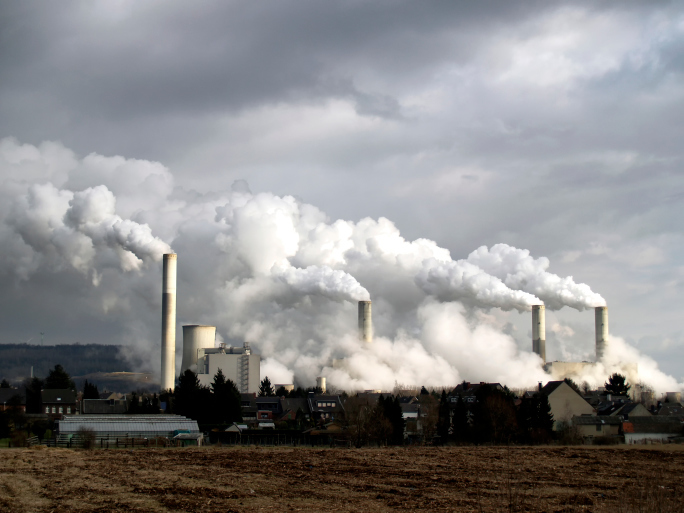The U.S. Environmental Protection Agency’s (EPA) Clean Power Plan (CPP) proposed in June 2014 has received a considerable pushback from federal and state officials, most recently from Senate Majority Leader Mitch McConnell (R-KY).
States Face Hobson’s Choice
States face a difficult choice: Either move forward with a state implementation plan (SIP) in an attempt to minimize damage to the state’s economy or do nothing and risk the possibility of EPA imposing its own, perhaps less favorable, set of mandates and restrictions.
This choice has been discussed in state capitals across the country. The Energy, Environment, and Agriculture Committee at the American Legislative Exchange Council adopted model legislation ensuring, if adopted, state legislatures would have final say over any SIP developed by their respective environmental protection agencies to comply with CPP.
Pennsylvania and West Virginia have enacted laws requiring their respective states’ environmental protection agencies to submit any SIP developed to comply with EPA’s CPP regulations to the legislature for approval. If legislators don’t approve the plans, the agencies must start again from scratch.
In September 2014, Alabama, Indiana, Kansas, Kentucky, Louisiana, Nebraska, Ohio, Oklahoma, South Dakota, South Carolina, West Virginia, and Wyoming together filed a motion to expedite a court review of their lawsuit challenging EPA’s rules.
Randel Christmann, a member of the North Dakota Public Service Commission (NDPSC), argues the technology does not exist to meet CPP goals absent dramatic cost increases.
“NDPSC recognized in its public comments about 111D that [we] should not do a SIP,” Christmann said. “In this case the technology is not there yet. The proposed EPA regulations, if implemented, will inevitably prove disastrous, and the federal government should be responsible for the devastation they will cause to the economy, especially to the poor, [who will suffer from] higher prices or even a lack of power [availability].”
Those in favor of not adopting a SIP picked up a powerful ally when McConnell said, “Think twice before submitting a state plan—which could lock you in to federal enforcement and expose you to lawsuits—when the administration is standing on shaky legal ground and when, without your support, it won’t be able to demonstrate the capacity to carry out such political extremism.”
McConnell’s statement came in a letter to the National Governors Association. McConnell’s letter charges EPA with “attempting to compel states to do more themselves than what the agency would be authorized to do on its own.”
Support for McConnell’s Idea
A coalition of 32 organizations signed a letter supporting McConnell’s warning against SIP implementation, stating, “We agree with you that states are completely within their legal rights to ‘just say no’ and let EPA take sole responsibility for implementing the [Clean Power Plan].”
EPA estimates coal-fired power plants currently producing almost 50 gigawatts (GW) would be forced into early retirement between 2016 and 2020 under CPP, enough electricity to power 25 million homes.
‘Unworkable and Probably Illegal’
“State officials should heed Senate Majority Leader McConnell’s sound advice and refuse to cooperate with EPA’s so-called clean power rule,” said Bonner Cohen, a senior fellow at the National Center for Public Policy Research.
“Rather than spend taxpayer funds trying to implement an unworkable and probably illegal EPA power grab, states should allow the court cases to play out,” Cohen said.
Cohen says states are increasingly chafing under EPA’s yoke.
“What we are seeing in the resistance to EPA by Pennsylvania and West Virginia is a welcome, and long overdue, reassertion of federalism,” Cohen said.
‘Consequences Will Be Costly’
MDU Resources Group, a diversified energy company that produces and transports oil and gas and produces electric power, also opposes CPP.
Rick Matteson, director of communications and public affairs for MDU, said “EPA’s [CPP] will force exorbitant increases in electricity costs paid by American consumers that will far outweigh any benefits, and it will endanger the continued supply of reliable and affordable power that is fundamentally necessary to a healthy American economy.”
Bette Grande (governmentrelations@heartland) is a Heartland Institute research fellow and former North Dakota state legislator.
INTERNET INFO
Sen. Mitch McConnell, “Letter to the National Governor’s Association Concerning the EPA’s Clean Power Plan,” March 19, 2015: https://heartland.org/policy-documents/sen-mitch-mcconnells-letter-national-governors-association-concerning-epas-clean-po
Americans for Tax Reform, et al., “Conservative Groups Unify Around McConnell Strategy to Protect States Against EPA Power Grab,” April 1, 2015: https://heartland.org/policy-documents/conservative-groups-unify-around-mcconnell-strategy-protect-states-against-epa-powe





